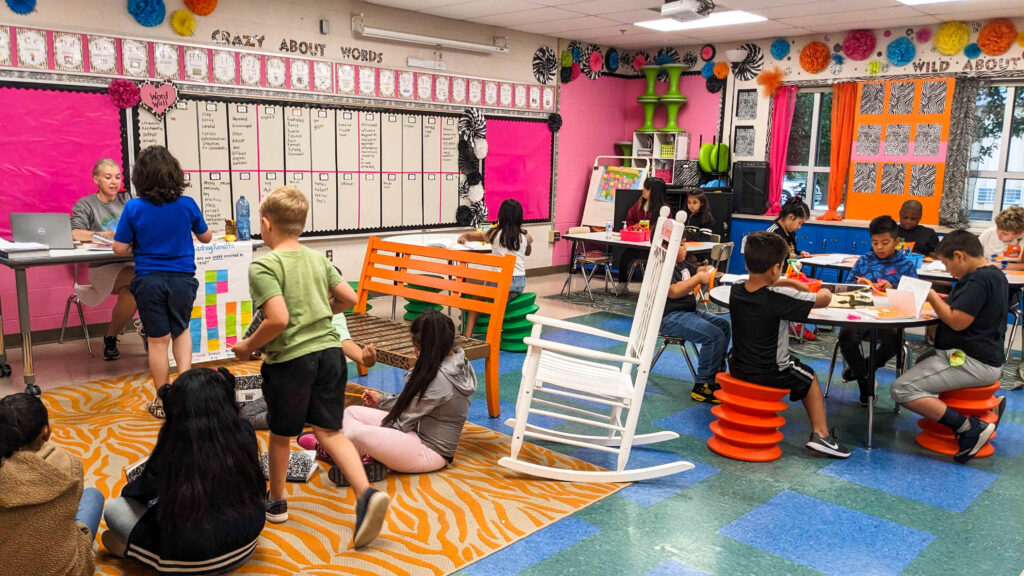
Inside Christina Deering’s third grade classroom at Whitsitt Elementary School, a group of students sits crisscross on the floor, going over different types of words.
They read out loud: “food,” “fruit,” “crust.” The students are working on words with U sounds.
Among them is 9-year-old Ian Golden. He said he’s been enjoying summer school.
“I think it’s really fun because I love English. And I really like the activities,” Golden said. “The most challenging thing would probably be reading, but it’s not that challenging.”
Stephanie Stauning leads Whitsitt’s Promising Scholars summer school program. Many of this year’s attendees are third graders, trying to avoid being held back after scoring less than proficient on the English Language Arts section of the state’s standardized test.
Stauning said the state’s new retention law has changed the vibe of summer school.
“It has made it, I think, a little bit more education-focused, where before we were able to have more fun, and it wasn’t as heavy,” Stauning said. “I think it’s become a little heavier.”
Nine-year-old Jacey Tate is feeling that weight. He said he didn’t do well on the state’s standardized test, and did even worse on the retake.
“I’m probably not going to fourth grade,” Tate said. “I’m a rising fourth grader. I’m probably going to go back to third.”
When asked how he feels about that, Tate responded, “Worried.”
And he’s not alone. Stauning said out of the 110 students at Whitsitt’s Promising Scholars program, 24 are there because they have to be in order to avoid retention.
One major concern of those opposed to Tennessee’s new policy has been the emotional impact it can have on kids. Even though Tate said he’s a good reader, he doesn’t have much confidence in his abilities.
“I’m not that smart though,” Tate said. “I am but … I ain’t smart at hard things.”
Tate said he wants to go to fourth grade, but he’s not sure whether he’ll get there in the fall.
Still, some educators, parents and state officials agree with the new third grade policy. Alice Weber is a numeracy coach at Whitsitt, and said she’s excited by the state’s approach.
“We have some other states that really have some success stories. I think kicking the can down the road and hoping that our students are going to catch up at some point is not realistic anymore,” she said.
Weber added that her school has great counselors and instructors who are trained in social emotional learning to help support students who may need to redo the third grade.
Families should receive their final retention decisions no less than 10 days before the start of the next school year.

